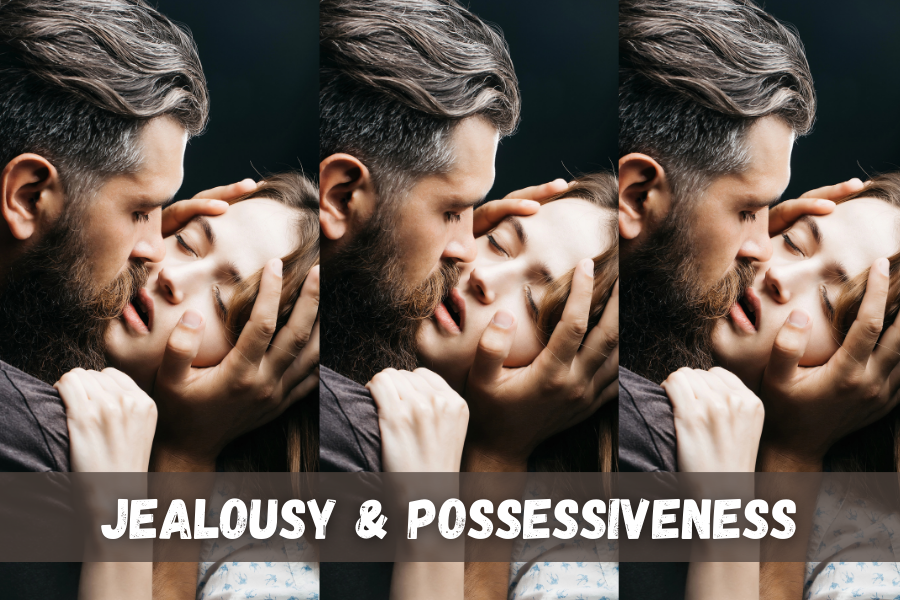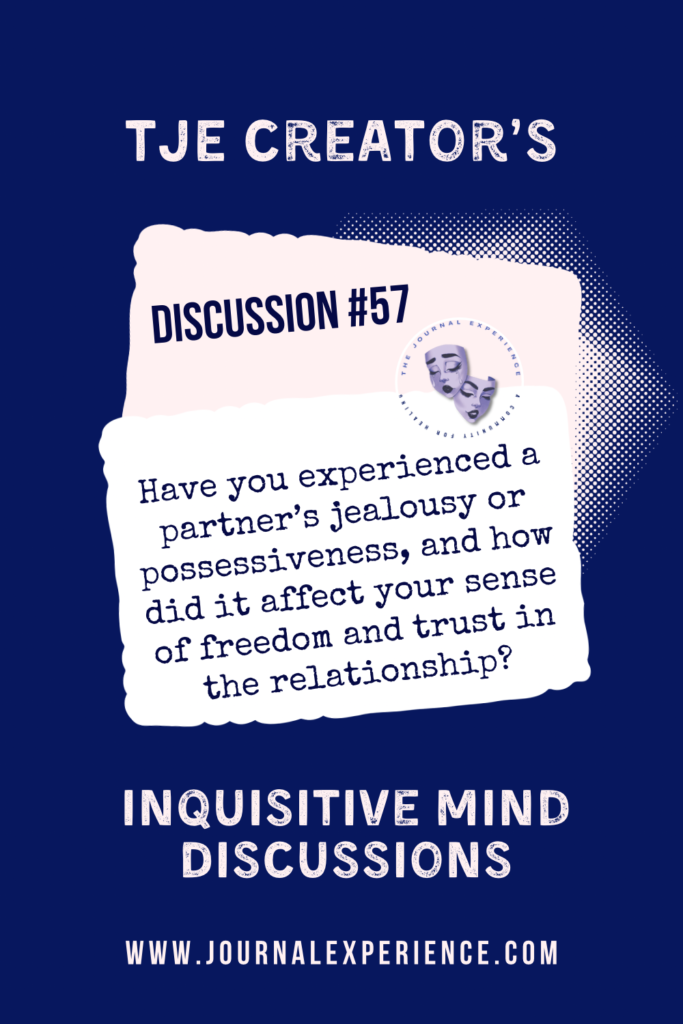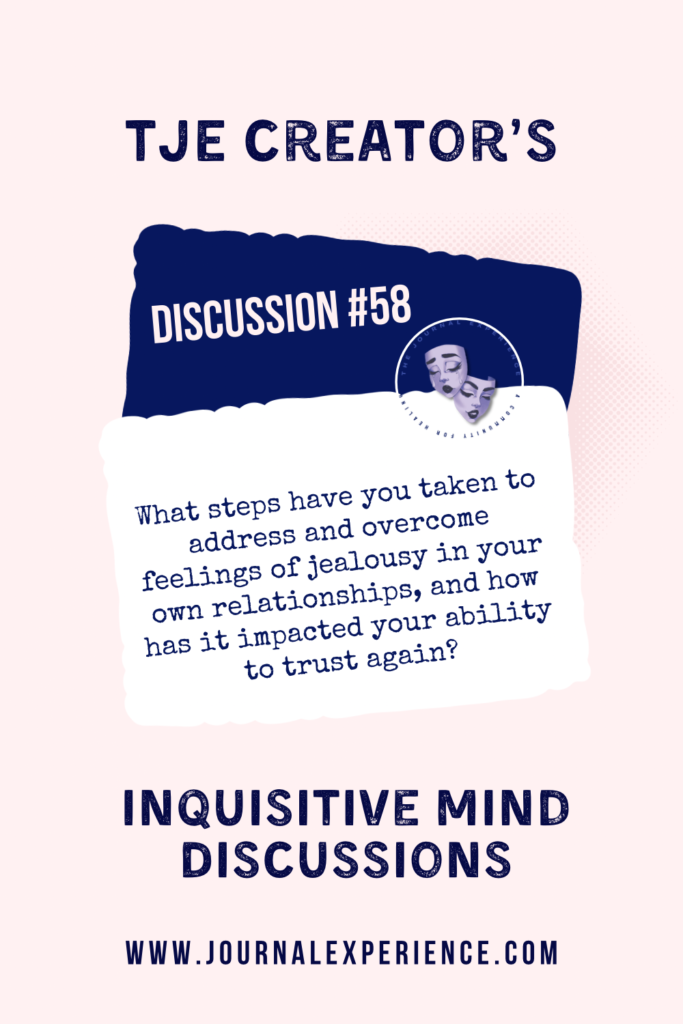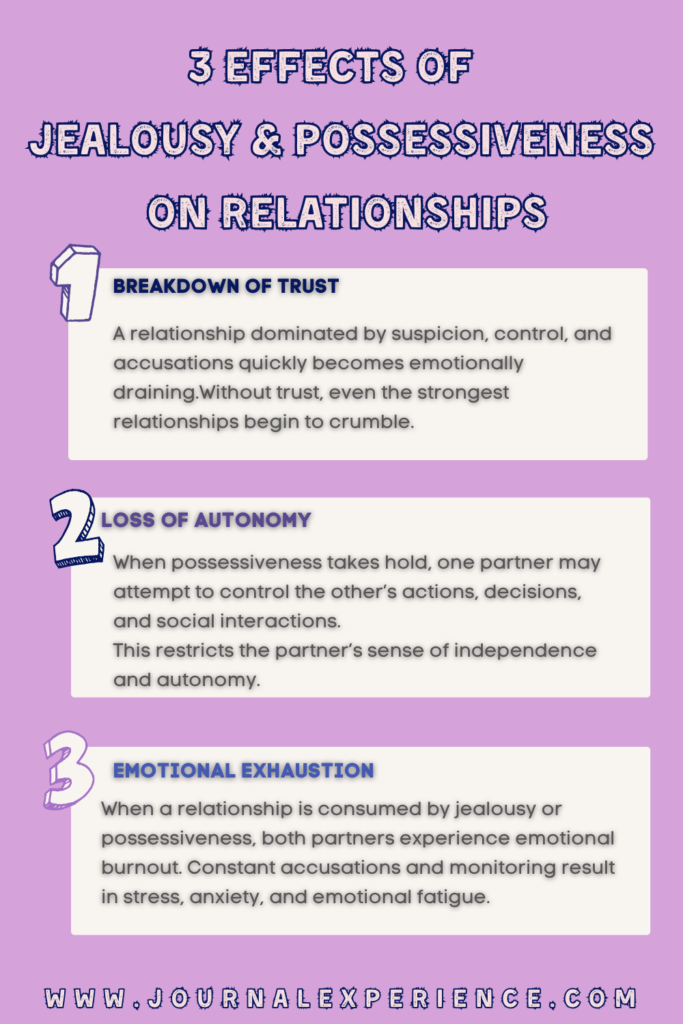Jealousy and possessiveness, while natural emotions, can become deeply harmful if left unaddressed.

They arise in relationships of all kinds—romantic, familial, or platonic—and often lead to feelings of insecurity, mistrust, and emotional instability.
Left unchecked, these emotions can severely damage the foundation of trust, creating rifts that may take years to repair, if they can be repaired at all.
In this article, we’ll explore the roots of jealousy and possessiveness, their impacts on relationships, and provide practical steps for managing and overcoming them. Through this process, you’ll discover how to foster healthier, more fulfilling relationships built on trust and mutual respect.
Understanding Jealousy and Possessiveness
To grasp how jealousy and possessiveness affect our relationships, it’s important to look beyond their surface-level symptoms. These emotions don’t appear randomly; they are typically fueled by deeper psychological factors.
By understanding their roots, we can better address and manage them before they cause harm to a relationship. Let’s start by breaking down the two emotions and their core drivers.
Jealousy
Jealousy arises from a sense of fear—specifically, the fear of losing someone or something valuable. When jealousy takes hold, it often leads to feelings of inadequacy, insecurity, and vulnerability. Here’s a closer look at its key elements:
- Core Driver: The fear of losing someone or something valuable to another person.
- Emotional Impact: Creates feelings of inadequacy, insecurity, and vulnerability.
- Psychological Roots: Often linked to past experiences of betrayal, low self-esteem, or attachment issues.
Possessiveness
While jealousy may be more about reacting to perceived threats, possessiveness is about control. People who struggle with possessiveness often feel the need to monopolize a relationship, driven by a desire to protect what they see as “theirs.” Here’s what defines possessiveness:
- Core Driver: A desire to control or monopolize a relationship.
- Emotional Impact: Instills a need for constant reassurance, validation, and control.
- Psychological Roots: Stems from fear of abandonment and a deep-seated insecurity about one’s value in the relationship.
Both emotions are closely related, but they differ in how they manifest in a relationship.
Jealousy is typically reactionary, triggered by perceived threats, while possessiveness is more proactive, aiming to preemptively maintain control over a partner’s interactions and independence.
Psychological Triggers
- Low Self-Esteem: When individuals feel unworthy or insecure, they are more likely to experience jealousy or possessiveness. They fear losing their partner because they doubt their own value.
- Past Betrayal: Previous experiences of infidelity or broken trust can make individuals hypersensitive to potential threats, causing them to be more prone to jealousy.
- Fear of Abandonment: A deep-rooted fear that the partner may leave often drives both jealousy and possessiveness, leading to controlling behaviors meant to prevent this perceived risk.
By understanding these psychological underpinnings, it becomes easier to recognize when these emotions are creeping into your relationship and take steps to address them.

The Effects of Jealousy and Possessiveness on Relationships
Unchecked jealousy and possessiveness can cause profound damage, both emotionally and relationally.
Over time, these feelings take a toll on both partners, leading to emotional exhaustion, resentment, and eventually, relationship breakdown.
Here’s how these emotions affect relationships in the long term:
Breakdown of Trust
One of the first casualties of unchecked jealousy and possessiveness is trust. Without trust, even the strongest relationships begin to crumble.
A relationship dominated by suspicion, control, and accusations quickly becomes emotionally draining.
Key Impacts on Trust:
- Constant Suspicion: The jealous partner becomes suspicious of even harmless interactions, questioning every move the other makes.
- Monitoring and Control: Possessiveness often leads to controlling behaviors, where one partner feels the need to monitor the other’s activities constantly.
- Erosion of Emotional Safety: The scrutinized partner may feel emotionally unsafe, leading to withdrawal and reluctance to communicate openly.
Loss of Autonomy
When possessiveness takes hold, one partner may attempt to control the other’s actions, decisions, and social interactions.
This restricts the partner’s sense of independence and autonomy.
Examples of Possessive Behaviors Include:
- Imposing restrictions on friendships or social activities.
- Demanding constant updates on whereabouts.
- Setting unreasonable expectations around time spent together, such as forbidding time alone or with others.
These behaviors create a toxic imbalance where one partner feels trapped, leading to resentment and emotional distancing over time.
Emotional Exhaustion
When a relationship is consumed by jealousy or possessiveness, both partners experience emotional burnout. Constant accusations and monitoring result in stress, anxiety, and emotional fatigue.
Instead of finding joy and comfort in the relationship, partners may begin to view it as a source of frustration and conflict.
If jealousy and possessiveness have left you feeling emotionally drained or disconnected from yourself, the Healing The Inner Trauma Child (HITCH) Method offers powerful guidance to restore emotional balance, rebuild trust, and reconnect with your inner resilience.
Signs of Emotional Exhaustion in a Relationship:
- Frequent arguments over the same issues.
- Emotional detachment, where one partner withdraws to protect themselves.
- Increased tension or walking on eggshells to avoid triggering the other partner’s jealousy.
If jealousy and possessiveness are not addressed, these dynamics create a vicious cycle of distrust, anger, and withdrawal.
Identifying Signs of Unhealthy Jealousy
Jealousy, when unchecked, can become toxic. The challenge is that it often escalates gradually, so it’s important to recognize the warning signs early. Below are some telltale signs that jealousy has crossed into unhealthy territory:
1. Constant Need for Reassurance
A partner constantly seeking validation may ask repetitive questions like, “Do you still love me?” or “Are you sure you’re not interested in anyone else?”
This can lead to emotional strain, as the partner being questioned may feel that no amount of reassurance is ever enough.
2. Suspicion of Innocent Interactions
Unfounded accusations can emerge from the most innocent of actions.
For example, a partner might feel jealous if their significant other talks to a colleague or friend, assuming that these interactions pose a threat to the relationship.
3. Monitoring and Intrusive Behaviors
Unhealthy jealousy often manifests as one partner checking the other’s phone, social media, or messages without consent.
Monitoring someone’s private interactions violates trust and privacy and can quickly damage the relationship.
4. Attempts at Isolation
Jealousy can cause one partner to try to isolate the other from their social circles, family, or friends.
These attempts at control, often disguised as concern, are rooted in fear and insecurity.
If you notice that your partner is limiting your social interactions or discouraging you from spending time with others, it may be a sign of possessiveness.
By recognizing these behaviors early, couples can prevent jealousy from becoming a destructive force in the relationship.

Strategies for Overcoming Jealousy and Possessiveness
Managing jealousy and possessiveness isn’t about ignoring these emotions, but rather learning to address them in a healthy, constructive way. Here are actionable strategies for overcoming these emotions:
1. Self-Reflection and Awareness
Take time to reflect on the emotions driving your jealousy. Is it fear, insecurity, or a past betrayal that fuels these feelings? Understanding your emotional triggers allows you to take responsibility for them instead of projecting them onto your partner.
Key Questions to Ask Yourself:
- Where are these feelings coming from?
- Is my jealousy based on real evidence or assumptions?
- How can I work on my self-worth outside of the relationship?
2. Open and Honest Communication
Effective communication is crucial for resolving jealousy in relationships. Instead of bottling up emotions or making accusations, use “I” statements to express your feelings without putting your partner on the defensive.
Example of Open Communication:
- Instead of saying, “You’re always flirting with others,” try, “I feel insecure when I see you talk closely with other people because it brings up feelings of doubt.”
3. Build Trust with Boundaries
Establish clear, mutual boundaries that both partners agree to and respect. Trust takes time to build, and boundaries serve as an agreement that fosters security in the relationship.
Examples of Trust-Building Exercises:
- Set guidelines for transparency without invading privacy.
- Participate in activities together that foster mutual respect, such as sharing relationship goals and checking in regularly about how both partners feel.
4. Strengthen Self-Esteem and Independence
One of the most powerful ways to combat jealousy is to work on your self-worth. Low self-esteem fuels insecurity, leading to dependence on your partner’s validation. Engaging in hobbies, pursuing personal goals, and recognizing your own strengths can help you feel more secure in yourself and your relationship.
Ways to Improve Self-Esteem:
- Practice daily affirmations to reinforce positive self-beliefs.
- Engage in activities that bring you joy, outside of the relationship.
- Celebrate your personal successes, no matter how small.
5. Use Cognitive Behavioral Techniques (CBT)
CBT can help challenge irrational thoughts. When you feel jealousy creeping in, pause and ask yourself if there’s any evidence supporting your feelings. Often, jealousy is driven by irrational fears that lack factual basis. Reframe these thoughts to keep them in check.
Example of Reframing Negative Thoughts:
- Original Thought: “My partner is talking to someone else, they must be cheating.”
- Reframed Thought: “Talking to someone doesn’t mean they are disloyal. I trust my partner, and I can clarify if I feel uncomfortable.”
By practicing these strategies regularly, individuals can reduce feelings of jealousy and possessiveness while fostering trust and emotional security in the relationship.
When to Seek Professional Help
While jealousy and possessiveness can often be managed through self-awareness and communication, there are situations where professional intervention may be necessary. Therapy can provide a safe space to explore deeper emotional triggers and help couples work through complex relational issues.
Signs It’s Time to Seek Help:
- Emotional or Physical Abuse:
If jealousy escalates to the point of controlling behavior, manipulation, or any form of abuse, it’s essential to seek help immediately. Abuse is never acceptable in any form, and therapy can offer a safe outlet for addressing these harmful behaviors. - Obsessive Jealousy:
When jealousy becomes all-consuming—dominating thoughts, leading to paranoia, or affecting daily functioning—it may be linked to deeper psychological issues such as anxiety, attachment disorders, or past trauma. Therapy can help identify and resolve these underlying problems. - Relationship Breakdown:
If jealousy or possessiveness has already caused significant damage to the relationship, such as emotional detachment or estrangement, couples therapy may be necessary. A therapist can guide partners through healing conversations and strategies to rebuild trust.
Therapists are trained to help individuals and couples navigate the complex emotions of jealousy and possessiveness, offering strategies for healing and rebuilding the relationship on a stronger, healthier foundation.
Healing from deeply rooted patterns of emotional insecurity often requires structured guidance. The Codependency Therapy | Self Love Recovery Treatment Program offers expert support to help you break unhealthy relational cycles, rebuild emotional independence, and nurture healthier relationships.
Overview
Jealousy and possessiveness are natural emotions that can arise in any relationship, but if left unchecked, they can destroy trust and create toxic dynamics. By understanding the psychological roots of these feelings and taking proactive steps to manage them, it’s possible to overcome jealousy and possessiveness and foster a stronger, more trusting relationship.
If these emotions become overwhelming, seeking professional support can provide the tools needed to heal and restore balance. No one should navigate the challenges of jealousy and possessiveness alone—take action, seek support, and start building a healthier, more fulfilling relationship today.

True healing begins with understanding where patterns of jealousy and emotional insecurity originate. The Webinar: Origins of Codependency and Pathological Narcissism offers critical insight into how early relational wounds impact adult relationships—and how to break free for good.
If you’re ready to take the next step toward emotional health and stronger connections, become a member of The Journal Experience or subscribe to TJE Newsletter for more insights and support. Join the journey today!